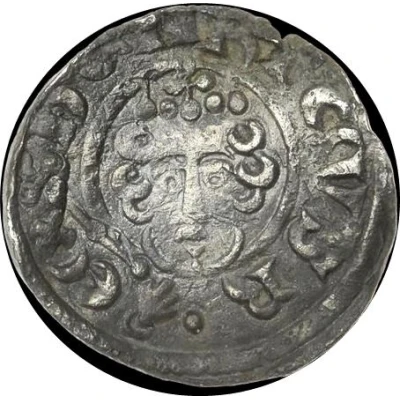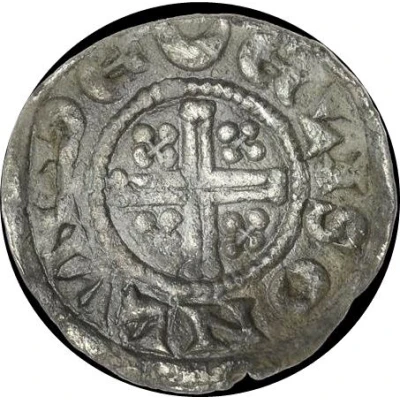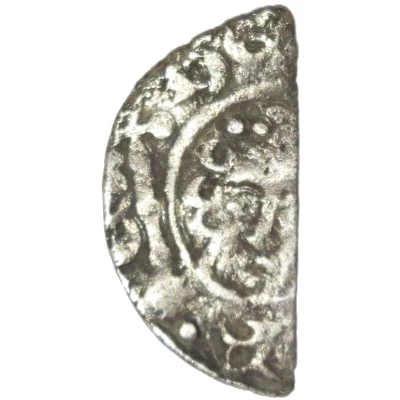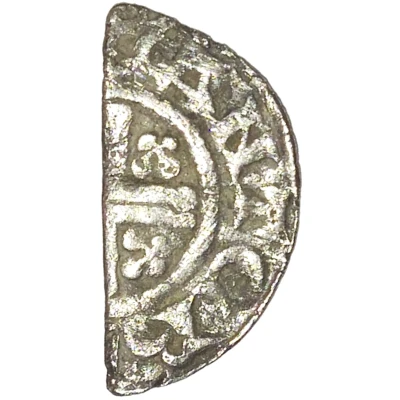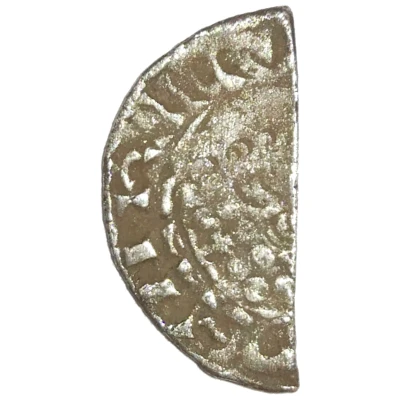
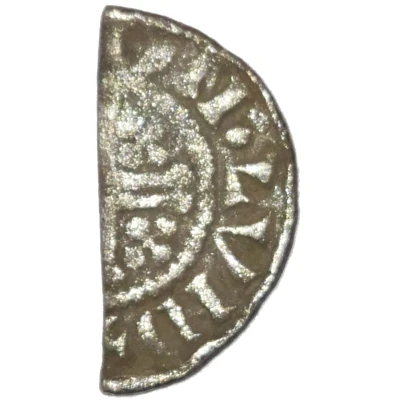

½ Penny - Henry III Short Cross type; class 6c ND
| Silver | 0.51 g | 11 mm |
| Issuer | England (United Kingdom, British Overseas Territories and Crown Dependencies) |
|---|---|
| King | Henry III (1216-1272) |
| Type | Standard circulation coin |
| Years | 1216-1247 |
| Value | ½ Penny (1⁄480) |
| Currency | Pound sterling (1158-1970) |
| Composition | Silver |
| Weight | 0.51 g |
| Diameter | 11 mm |
| Shape | Half circle |
| Technique | Hammered |
| Orientation | Variable alignment ↺ |
| Demonetized | Yes |
| Updated | 2024-10-08 |
| Numista | N#412601 |
|---|---|
| Rarity index | 94% |
Reverse
Voided short cross with four pellets in each angle within inner circle, legend around.
Script: Latin
Comment
House of Plantagenet (1154-1399), Henry III (1216-72), Short Cross coinage (1216-47), silver cut halfpenny, possibly class 6c.
The Short Cross coinage continued during Henry's reign for a further 30 years during which time the style of portraiture and workmanship deteriorated. By the 1220s minting had concentrated at London and Canterbury, one exception being the mint of the Abbot of Bury St Edmunds.
Medieval coins were cut into halves and quarters to provide fractional denominations without the need to strike new coins. It is thought these were generally cut at the mint, although it is also likely to have happened during transactions. Cut halfpennies are known in England from Anglo-Saxon times (c. 750s) until Edward I introduced round farthings and halfpennies in 1279.
Interesting fact
One interesting fact about the ½ Penny - Henry III (Short Cross type; class 6c) ND (1216-1247) coin is that it was minted during the reign of King Henry III, who was only nine years old when he ascended to the throne. This coin was part of a series of coins minted during his reign, which saw significant changes in the design and production of coins in England. The Short Cross type, which features a short cross on the reverse side of the coin, was introduced during this time and was used until the 1240s. Despite being made of silver, this coin weighs only 0.51 grams, making it a relatively small and lightweight coin.
